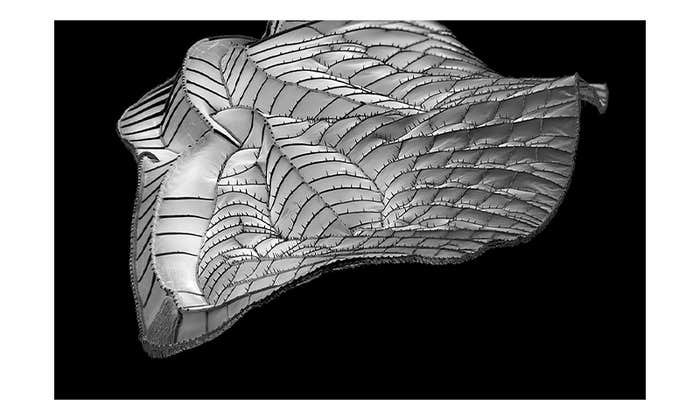What separates the sciences from the humanities? What unites them? And how can they each illuminate the nature of mind and self? These were some of the questions on Siri Hustvedt’s mind as she began her new book of essays, A Woman Looking At Men Looking At Women. Hustvedt herself has an omnivorous professional history that blends the two worlds in unconventional ways. She is an essayist, poet, and novelist (best known for her recent novel The Blazing World), an English literature PhD by training, and lectures on psychiatry at the Weill Medical School of Cornell.
In her essays, Hustvedt uses this eclectic expertise to jump freely from the arts to empirical science and back again. What might at first appear to be an insoluble combination of characters—from Pablo Picasso and the photographer Robert Mapplethorpe to the psychologist Steven Pinker and 17th century natural philosopher and poet Margaret Cavendish—Hustvedt unites by the questions they each, in their own ways, entertain: What is the difference between mind and brain? Who is the self? What can we be certain of? In a characteristically searching moment, Hustvedt ponders the placebo effect: “How does the thought or expectation I am going to get better, conscious or unconscious, ‘interact’ with neurons?”
The result is a wide-ranging collection. We recently spoke to Hustvedt in her elegant Park Slope home about these questions, as well as about her personal heroes and how to confront unconscious bias.
You say that this book is about making sense of the plurality of voices you’ve encountered in your research. Which voices do you most admire?
Someone who I’ve been immersed in very deeply in recent years, the duchess of Newcastle-upon-Tyne, Margaret Cavendish, who published in 1666 a famous tract on science, called Observations upon Experimental Philosophy. The more I read natural philosophy, the more I understand what a profound critic she was, in terms of the mind-body problem. And it seems I’m not alone because Cavendish was re-unearthed by feminist scholars in the 70s and 80s, maybe into the 90s as well. I feel a real pleasure in her philosophical vindication. People are again thinking of the mind-body problem, asking the same questions that were asked in the 17th century, returning in many ways to the identical problems and therefore she has become current. Henry James is another person who explores the ambiguities of human encounters in ways that I find thrilling.
As for contemporary voices, Lee Smolin. He has taken a position on the question of time in physics, which is, basically, that time exists. I have absolutely no idea whether he’s right or not, but there’s something admirable to me in a person like that taking a stand against what is pretty deeply ingrained in contemporary physics. That to me has a certain heroic aspect.
How do you think metaphor plays a role in bridging interdisciplinary gaps between science and the arts?
We can’t think without metaphor. Evelyn Fox Keller, the philosopher of science who started as a physicist and a geneticist, and who also writes about the history of science, says metaphors can open up avenues to thought but they can also shut thought down. The idea of the mind as a computer, which came about after Turing, has actually lost its metaphorical value altogether. It has become restrictive. Neuroscientists talk to me all the time about computations in the brain. It’s not that I think computation is a metaphor or way of thinking about the mind that should be expelled all together, but I want to show how, if you march through this history, you begin to see how it has shut down thought. It actually prevented people from thinking through the mind-brain issues because they had already created a form of dualism that was a working practice. Well, from my point of view, it is a dead end.
Have you settled on a new personal definition of the mind?
No—I’m going to be frank about that because I’ve really been immersed in this for many years. It interested me the degree to which people assume that the mind is a floating entity that is not attached to the body in any way. But they have absolutely no explanation for how that could be. Which is exactly what Margaret Cavendish says: “I ask you then where is this inside the body?” Any kind of materialism suggests that we have to think this though. Now, this is hardly my original thought, but I think that in order to begin to solve this, you have to extend the boundaries of the body and the brain beyond the single autonomous person into both environment and relations with others. I think all the models that don’t do that are failing terribly.
You’ve said the “imagination must be understood as a corporeal reality.” What do you mean?
The imagination is I think, an intersubjective reality. It’s a way of inhabiting the other. But it, too, cannot be this floating thing. I think if you open yourself up to the idea that the body itself, not just the mind, but the entire human being has symbolic capacities—symbolic capacities that are then only always part of an intersubjective reality— you’re opening up questions that are extremely uncomfortable. The suppression of the body in Western philosophy has made that kind of talk very uncomfortable. But to ask the question is important.
Why do you think some entrenched dualisms—like mind and body, form and content, and masculine and feminine—are false dichotomies?
For me, in terms of visual art, the idea that you can separate form and content is ridiculous. The idea of divorcing those two is a little bit like divorcing the mind and body: “Forget about the junk it’s embodied in.” There are these rather weird sexual connotations attached. The idea that women are closer to nature, which is of course out of birth, is absurd. Nobody is more or less natural than anybody else. This gets played out in a number of interesting ways. For example, through Stephen Hawking’s body. In some ways his disability became the image of the mind with a shrunken body, which plays extremely well. Or the old Einstein with the crazy hair. These cultural images of male genius are heavily coded by our cultural ideas of what male genius is. What does a female genius look like? I don’t know.
Are women in the sciences and arts treated the same as each other?
There’s prejudice in both places, no question. And I have had conversations with women in both the sciences and arts who have a litany of complaints. Generally the complaints fall under the category of not being taken as seriously as a man—I call it the “masculine enhancement effect.” I do feel in academic life in general, which is distinct from the arts, that if you know a lot, you can scrape up some genuine respect. In the arts, the “there” there is extremely iffy, as I say in the essay “No Competition.” It’s not about erudition. It’s a whole other quality that has been created by people who don’t know that much.
In some funny way it’s easier to discriminate against women in the arts than in scholarly fields because in the latter at least there’s a body of knowledge that is mastered or not, or someone makes in-roads where no one has done before. In the arts it’s just much easier to say the work’s just not good. “We don’t like it.” And that’s painful for women artists. What claim can you make then if your work is dismissed as no good?
That brings me to a quote of yours: “How can human beings rid themselves of qualities of which they have no consciousness?” Do you think there is any action that can be taken?
I can give you an example in my own life. I was at a conference that was run by an extremely smart, forceful woman. It was a think tank business, and I was saying something, and she cut me off mid-sentence. I was shocked. But later, I asked myself: “Had she been a man, how would you have reacted. Would you have felt it was as aggressive?” I think not.
We all have implicit bias. It is parallel to the implicitly racist ideas that people carry around. Currently racism is more on the front of people’s minds, and sexism I think is more unconscious. But the way to become conscious is to examine our responses. Most of us are garden-variety neurotics: We have patterns that we repeat because of those neuroses. This is straight Freud. And through some kind of internal dialogue, one can become aware of those patterns.
When you’re pointing to someone’s implicit bias, it’s important to not slap the person across the face, because they don’t know. I once had a TV interview in Poland where the interviewer asked me, “In your life how do you balance being a writer and a mother and wife?” I asked her if she would have asked that of a male writer, and she said no. So I replied that I wouldn’t answer on those grounds. And then I elaborated by saying that our lives as parents, children, siblings, and spouses are really important, but it’s not a question that should be asked only of women. I think, as a woman, the older you get the more easily these biases can be identified. A lot of young women who are starting out in the world of work always blame themselves: “I didn’t do enough, I wasn’t good enough, I could have handled that better”. When you’re my age, you go, “No! I handled that just fine. What just happened here had nothing to do with me. It had to do with my sex.”
Briony Cartmell is a freelance writer based between New York City and London, England.
Watch: The author of Lab Girl, Hope Jahren, explains how science changed her worldview.































